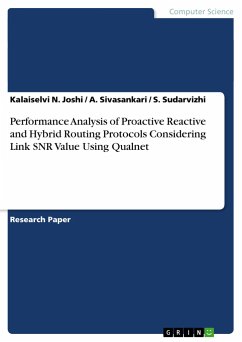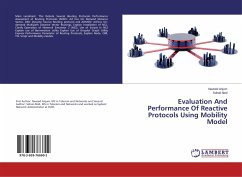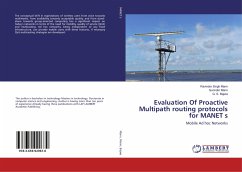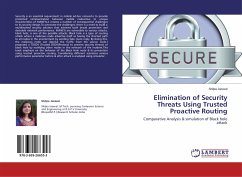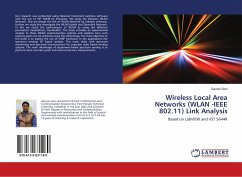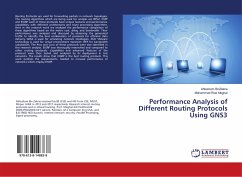Research Paper (postgraduate) from the year 2014 in the subject Computer Science - Internet, New Technologies, , language: English, abstract: Ad-hoc network is a concept in computer communications, which means that users wanting to communicate with each other from a temporary network, without any form of centralized administration. Each node participating in the network acts both as host and router and must therefore be willing to forward packets for other nodes. For this purpose, a routing protocol is needed. Routing protocols in MANET such as OLSR-INRIA, DSR and ZRP finds out the path between a given sources destination node pair without considering the reliability of the links in the selected path. Some links in MANET are unreliable due to interference from transmissions from adjacent links, ambient noise system noise, jamming signals from intruder nodes all of which results in low throughput, packet delivery ratio, high jitter and end-to-end delay. In our work, we use Signal-to-Noise Ratio (SNR) as a measure of the link reliability. We propose modified secure version of the of three protocols namely OLSR-INRIA, DSR & ZRP coined as SOLSR-INRIA , SDSR, & SZRP which takes into account the link SNR value as a measure of link reliability in addition to the other parameters as in the original method in the route discovery phase. QualNet network simulator have been extensively used to evaluate the performance of our modified secure routing protocol over two different network scenarios consisting of 52 and 72 mobile nodes respectively considering random waypoint (RWP) mobility model. The results indicate high throughput, high packet delivery ratio and low jitter and end-to-end delay in comparison to the original protocols which do not account for wireless links reliability.
Hinweis: Dieser Artikel kann nur an eine deutsche Lieferadresse ausgeliefert werden.
Hinweis: Dieser Artikel kann nur an eine deutsche Lieferadresse ausgeliefert werden.

